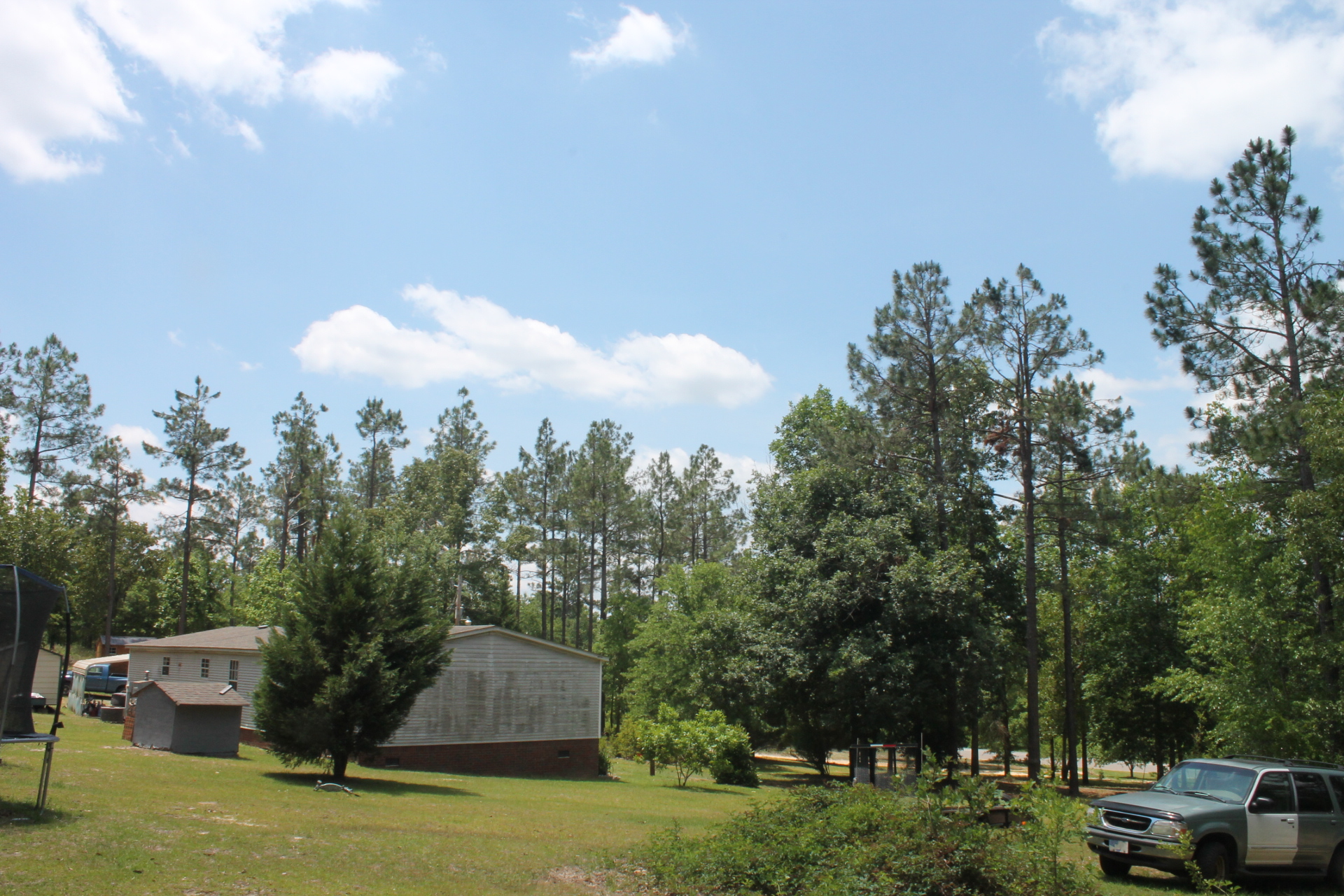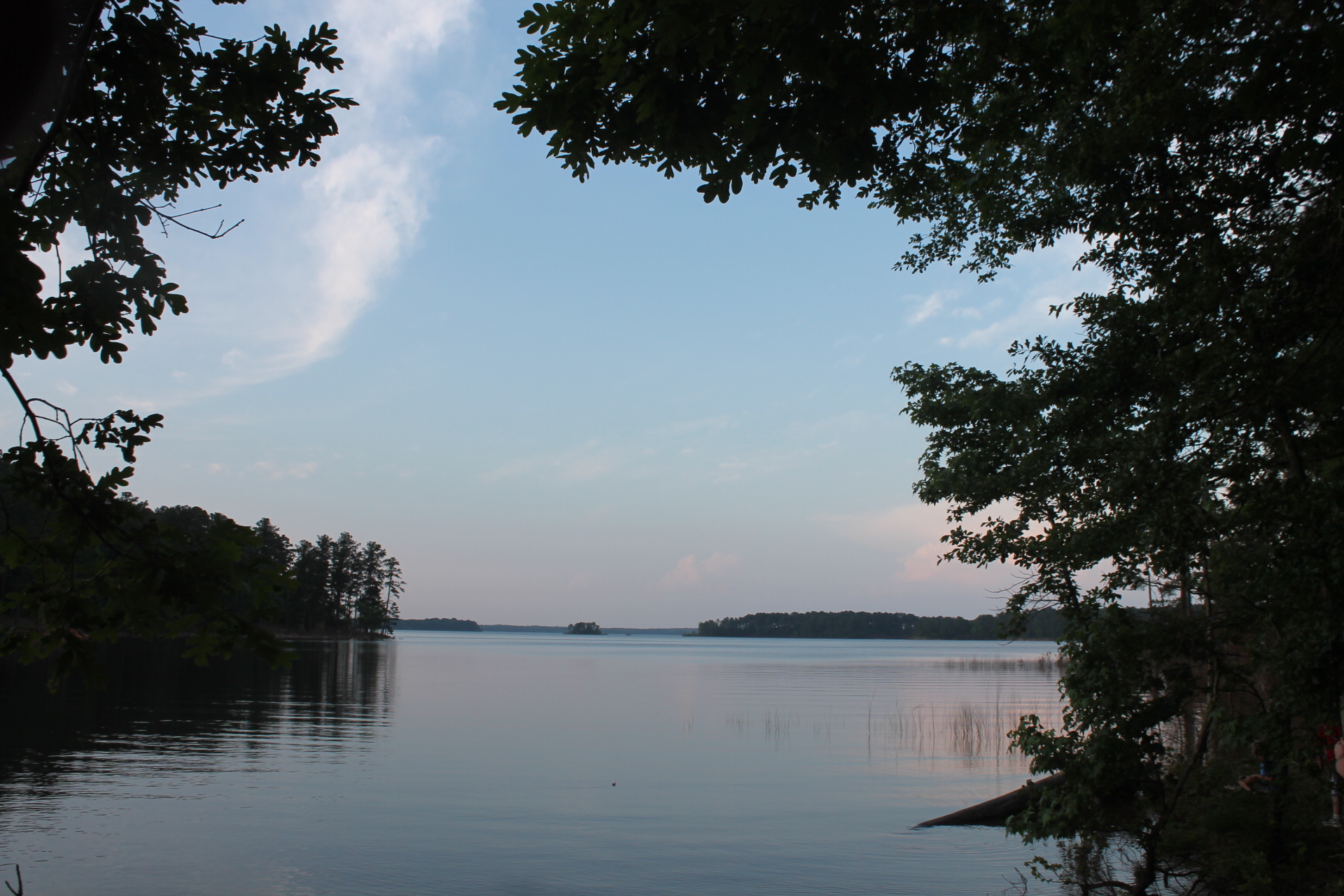It looks like you're using an Ad Blocker.
Please white-list or disable AboveTopSecret.com in your ad-blocking tool.
Thank you.
Some features of ATS will be disabled while you continue to use an ad-blocker.
share:
White-out conditions should be the current norm in our skies because of the (observable) rate at which they are being trashed. But there is still
some pale blue sky visible and sometimes a deeper blue. I believe that I have solved this mystery (of why we still see some blue sky) - it all
clicked into place when I read this article:
Neptune and 'Dogdgeball' Asteroid Star...
So as we continue to geoengineer our skies and allow unchecked emissions by jets into the stratosphere, our planet will experience more and more runaway global warming giving vent to more and more releases of methane providing us with, eventually, the bluest skies we've ever seen.
I have coined a new color name - 'methane blue' - to describe this hue.
Neptune and 'Dogdgeball' Asteroid Star...
Neptune is about 17 times more massive than Earth and shares with our planet a deep blue color — but for different reasons.
"In our case, the color comes from a combo-plate: Our oceans absorb red light and reflect away the blue, plus our atmosphere scatters blue light," Slooh astronomer Bob Berman said in a statement.
"But Neptune's color is due to methane, what we on Earth call natural gas. It absorbs the sun's red light but bounces the blue back to our eyes," Berman added. "The result is arguably the most deeply colored planet in the solar system...
So as we continue to geoengineer our skies and allow unchecked emissions by jets into the stratosphere, our planet will experience more and more runaway global warming giving vent to more and more releases of methane providing us with, eventually, the bluest skies we've ever seen.
I have coined a new color name - 'methane blue' - to describe this hue.
a reply to: luxordelphi
Why is the Sky Blue?
Why is the Sky Blue?
edit on 30-8-2014 by Grimpachi because: (no reason
given)
It's interesting. When you think methane OP do you think of the Jumping Jack Flash hypothesis? That is scary stuff and this instantly reminded me of
that theory.
a reply to: Grimpachi
"Why is the sky blue?" is a tad retro given today's skies. "Why was the sky blue?" is acceptable. Current conditions, though, call for a different question:
What Color is Your Sky?
"Why is the sky blue?" is a tad retro given today's skies. "Why was the sky blue?" is acceptable. Current conditions, though, call for a different question:
What Color is Your Sky?
Sometimes thick pollution causes the sky to appear white, but a clean sky is blue.
In many places air pollution causes haze that causes the sky to appear pale blue or even milky white. Layers of air pollution can cause the sky over the horizon to appear brown or gray. Air pollution can take many forms. It can be gases and vapors, mists and droplets or tiny particles of carbon or other materials.
a reply to: luxordelphi
My sky is a rich blue and never had any sort of trails to either make it that way, or make it paler, whatever theory you're trying to push..
My sky is a rich blue and never had any sort of trails to either make it that way, or make it paler, whatever theory you're trying to push..
originally posted by: Yeahkeepwatchingme
It's interesting. When you think methane OP do you think of the Jumping Jack Flash hypothesis? That is scary stuff and this instantly reminded me of that theory.
Yes...I do think of that as a very real scenario. What kind of set me back a bit was the thought that we could have all kinds of methane releases as we continue to churn out pollution in our atmosphere causing warming and the sky could continue to look blue if atmospheric methane concentrations got high enough.
Neptune doesn't have any oxygen in the atmosphere so there's no potential reaction with methane that way. But we do have oxygen in our atmosphere so methane blue skies could be short lived and pose an even greater threat.
a reply to: luxordelphi
I drive all over the country, and I see rich blue skies everywhere I go. The only times I see white skies is when the clouds move in. Every other time it's a beautiful blue.
I drive all over the country, and I see rich blue skies everywhere I go. The only times I see white skies is when the clouds move in. Every other time it's a beautiful blue.
a reply to: luxordelphi
Well where I live the sky has always been pretty blue as long as I can remember though some places I have been to it has seemed bluer while others didn't seem as blue. I guess you could do an analysis of the composition in atmosphere to compare to older samples. I think some agency does that already.
Anyway you have a neat concept with your coined phrase of methylene blue but you are a long ways from showing any correlation here on earth to the blue skies and methane increase.
If you want to have your idea go any further than your OP I would suggest finding analyses of past and present atmosphere compositions. That would be a good place to start but thats only if you think it would be worthwhile.
Well where I live the sky has always been pretty blue as long as I can remember though some places I have been to it has seemed bluer while others didn't seem as blue. I guess you could do an analysis of the composition in atmosphere to compare to older samples. I think some agency does that already.
Anyway you have a neat concept with your coined phrase of methylene blue but you are a long ways from showing any correlation here on earth to the blue skies and methane increase.
If you want to have your idea go any further than your OP I would suggest finding analyses of past and present atmosphere compositions. That would be a good place to start but thats only if you think it would be worthwhile.
edit on 30-8-2014 by Grimpachi because: (no reason given)
Mostly white skies here. Maybe half a dozen blue skies per month.
originally posted by: AlphaHawk
a reply to: luxordelphi
My sky is a rich blue and never had any sort of trails to either make it that way, or make it paler, whatever theory you're trying to push..
Perhaps you are living under one of these atmospheric methane hot spots?
Surface Methane (ppmv) Stratospheric Methane (ppmv)
(not sure I know the color 'rich blue' ??!!)
edit on 30-8-2014 by luxordelphi because: oh yeah
Neptune appears blue because the blue light is reflected back at you.
If Earth had enough methane gas in it's atmosphere (which at one point in it's past, it did), it would NOT make the sky "more blue".
It would, due to the red scatter, with the blue mixed in, look: Purple.
But in order for us to actually see that, the methane content of our atmosphere would have to displace most of the oxygen....meaning:
We would all be suffocating to death.
Plenty of blue sky where I live. Sorry to hear you're not getting them:



If Earth had enough methane gas in it's atmosphere (which at one point in it's past, it did), it would NOT make the sky "more blue".
It would, due to the red scatter, with the blue mixed in, look: Purple.
But in order for us to actually see that, the methane content of our atmosphere would have to displace most of the oxygen....meaning:
We would all be suffocating to death.
Plenty of blue sky where I live. Sorry to hear you're not getting them:



a reply to: luxordelphi
Then most of the US must be a methane hot spot considering all the deep blue skies I see every day.
Then most of the US must be a methane hot spot considering all the deep blue skies I see every day.
If methane makes Neptune look blue to us because of it reflecting blue light, wouldn't that mean little to no blue light would reach the surface?
And therefore, the sky at the surface would look more red to yellow?
And therefore, the sky at the surface would look more red to yellow?
edit on 8/30/2014 by abecedarian because: (no reason given)
Actually any blue sky you see is due to chemtrails containing "Manganese di-Bromo
di-Fluoro-Benzidine (salts)" - it's on Rense AND Aircrap - so it must be true.
originally posted by: Zaphod58
a reply to: luxordelphi
I drive all over the country, and I see rich blue skies everywhere I go. The only times I see white skies is when the clouds move in. Every other time it's a beautiful blue.
Again...'rich blue' and 'beautiful blue' are not colors I'm familiar with. Perhaps you'd like to respond to the following:
A Clearer View of Hazy Skies
For some astronauts, that thin blue line has appeared quite vulnerable. Many have noticed palls of haze lingering over parts of the world, the result of millions of tiny particles drifting in the atmosphere. Aerosol particles, which can be either liquid or solid, obstruct sunlight and cause distinct and vibrant features to blend into a hazy, featureless mélange of gray
a reply to: luxordelphi
Neither is Methane Blue.
Here, let me break it down for you and make it easier. The skies all across the US are blue. Not white. They're the same blue that they have always been.
Neither is Methane Blue.
Here, let me break it down for you and make it easier. The skies all across the US are blue. Not white. They're the same blue that they have always been.
a reply to: luxordelphi
It's called: Rayleigh Scattering:
Astronauts looking at our atmosphere edge on are seeing sun light passing through many, many more miles of our atmosphere than we do standing here on the ground and looking up.
However, we can see it's effect: The sky above had a deep blue look, but moving our eyes towards the horizon, the blue will become lighter and lighter, to where it almost looks white.
It's called: Rayleigh Scattering:
A portion of the beam of light coming from the sun scatters off molecules of gas and other small particles in the atmosphere. Here, Rayleigh scattering primarily occurs through sunlight's interaction with randomly located air molecules. It is this scattered light that gives the surrounding sky its brightness and its color. As previously stated, Rayleigh scattering is inversely proportional to the fourth power of wavelength, so that shorter wavelength violet and blue light will scatter more than the longer wavelengths (yellow and especially red light). However, the Sun, like any star, has its own spectrum and so I0 in the scattering formula above is not constant but falls away in the violet. In addition the oxygen in the Earth's atmosphere absorbs wavelengths at the edge of the ultra-violet region of the spectrum. The resulting color, which appears like a pale blue, actually is a mixture of all the scattered colors, mainly blue and green. Conversely, glancing toward the sun, the colors that were not scattered away — the longer wavelengths such as red and yellow light — are directly visible, giving the sun itself a slightly yellowish hue. Viewed from space, however, the sky is black and the sun is white.
Astronauts looking at our atmosphere edge on are seeing sun light passing through many, many more miles of our atmosphere than we do standing here on the ground and looking up.
However, we can see it's effect: The sky above had a deep blue look, but moving our eyes towards the horizon, the blue will become lighter and lighter, to where it almost looks white.
a reply to: Grimpachi
'methylene blue' is actually a brand name for some kind of a drug. My new color - methane blue - should not be confused with that. Methane blue would refer to the color of a sky with increased methane concentrations in the atmosphere.
I appreciate your encouragement and methane atmospheric concentration has been increasing BUT I'm thinking that, because of the oxygen in our atmosphere, other perils would befall us before we ever got to those really really blue Neptunian skies.
So what seems worthwhile to me is to somehow avoid those methane skies by, perhaps, stopping jet emissions into the stratosphere.
'methylene blue' is actually a brand name for some kind of a drug. My new color - methane blue - should not be confused with that. Methane blue would refer to the color of a sky with increased methane concentrations in the atmosphere.
I appreciate your encouragement and methane atmospheric concentration has been increasing BUT I'm thinking that, because of the oxygen in our atmosphere, other perils would befall us before we ever got to those really really blue Neptunian skies.
So what seems worthwhile to me is to somehow avoid those methane skies by, perhaps, stopping jet emissions into the stratosphere.
originally posted by: Zaphod58
a reply to: luxordelphi
Then most of the US must be a methane hot spot considering all the deep blue skies I see every day.
Well there you go then!
new topics
-
University student disciplined after saying veganism is wrong and gender fluidity is stupid
Education and Media: 43 minutes ago -
Geddy Lee in Conversation with Alex Lifeson - My Effin’ Life
People: 1 hours ago -
God lived as a Devil Dog.
Short Stories: 2 hours ago -
Police clash with St George’s Day protesters at central London rally
Social Issues and Civil Unrest: 3 hours ago -
TLDR post about ATS and why I love it and hope we all stay together somewhere
General Chit Chat: 4 hours ago -
Hate makes for strange bedfellows
US Political Madness: 6 hours ago -
Who guards the guards
US Political Madness: 9 hours ago -
Has Tesla manipulated data logs to cover up auto pilot crash?
Automotive Discussion: 11 hours ago
top topics
-
Hate makes for strange bedfellows
US Political Madness: 6 hours ago, 14 flags -
Who guards the guards
US Political Madness: 9 hours ago, 13 flags -
whistleblower Captain Bill Uhouse on the Kingman UFO recovery
Aliens and UFOs: 16 hours ago, 11 flags -
Police clash with St George’s Day protesters at central London rally
Social Issues and Civil Unrest: 3 hours ago, 7 flags -
TLDR post about ATS and why I love it and hope we all stay together somewhere
General Chit Chat: 4 hours ago, 5 flags -
University student disciplined after saying veganism is wrong and gender fluidity is stupid
Education and Media: 43 minutes ago, 3 flags -
Has Tesla manipulated data logs to cover up auto pilot crash?
Automotive Discussion: 11 hours ago, 2 flags -
God lived as a Devil Dog.
Short Stories: 2 hours ago, 2 flags -
Geddy Lee in Conversation with Alex Lifeson - My Effin’ Life
People: 1 hours ago, 2 flags
active topics
-
Candidate TRUMP Now Has Crazy Judge JUAN MERCHAN After Him - The Stormy Daniels Hush-Money Case.
Political Conspiracies • 731 • : Threadbarer -
"We're All Hamas" Heard at Columbia University Protests
Social Issues and Civil Unrest • 248 • : FlyersFan -
University student disciplined after saying veganism is wrong and gender fluidity is stupid
Education and Media • 4 • : chiefsmom -
Police clash with St George’s Day protesters at central London rally
Social Issues and Civil Unrest • 34 • : Freeborn -
Europe declares war on Russia?
World War Three • 64 • : Consvoli -
Thousands Of Young Ukrainian Men Trying To Flee The Country To Avoid Conscription And The War
Other Current Events • 118 • : Consvoli -
-@TH3WH17ERABB17- -Q- ---TIME TO SHOW THE WORLD--- -Part- --44--
Dissecting Disinformation • 626 • : cherokeetroy -
The Superstition of Full Moons Filling Hospitals Turns Out To Be True!
Medical Issues & Conspiracies • 19 • : FloridaManMatty -
Iranian Regime Escalates Hiijab Mandate Through Sexual Violence and Beatings of Women
Mainstream News • 166 • : purplemer -
They Killed Dr. Who for Good
Rant • 67 • : grey580
